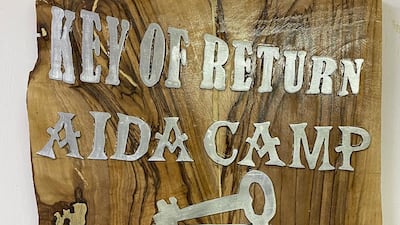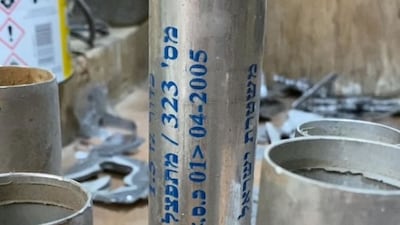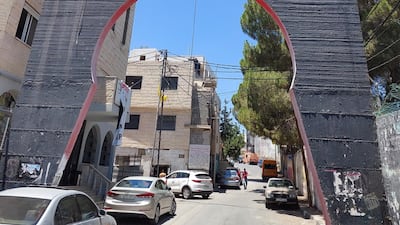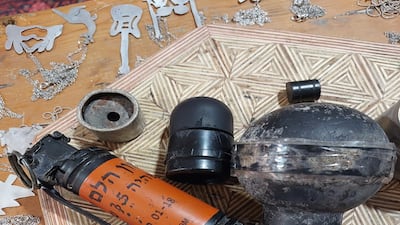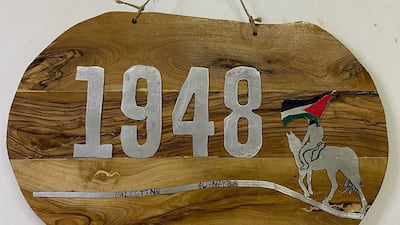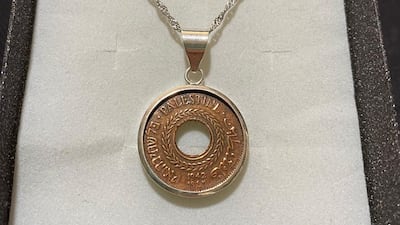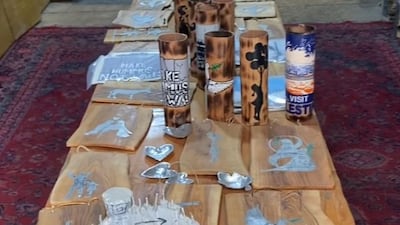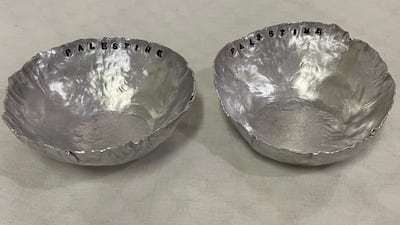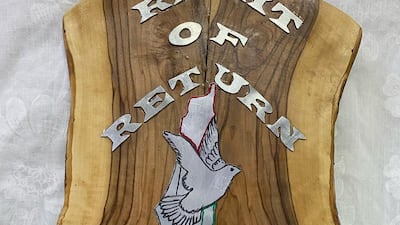For those venturing to Bethlehem in the Palestinian West Bank, look out for a little store called the Key of Return, inside the Aida refugee camp. Situated a short walk away from Banksy's famous Walled Off Hotel, the camp is home to 6,000 Palestinians displaced in the 1948 Nakba.
The once-temporary dwellings of the camp have now been replaced with sturdy buildings stretching several storeys, built around narrow, winding streets, and even has a new school, built during the pandemic. It is a cramped space, but what it lacks in size, it makes up for in a determination to retain its history and humanity.
The gateway to the area is topped by an enormous key, which spans the width of the road. According to the Museum of the Palestinian People in Washington, DC, the key is a "widely used symbol" of the Nakba, which means "catastrophe" in Arabic. The key symbolises the forced eviction of Palestinians from their land. Given little time to gather belongings, and convinced it would be for a short time only, many families left with nothing but the key to their front door.
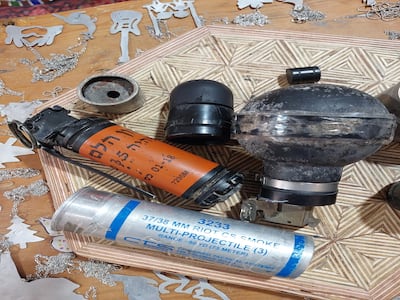
Now, 74 years later and still unable to return to their houses, those same keys have taken on an entirely different meaning, as a symbol of their right to go home.
That's the inspiration behind Key of Return, run by Akram Warah. Small and compact — it's barely large enough to fit four people inside — it is filled with carvings made from local olive wood, as well as trinkets and jewellery made from the cases of rubber bullets, tear gas canisters and smoke bombs fired into the camp by Israeli soldiers.
Life in the Aida camp is overshadowed by surveillance and the underlying threat of violence. Case in point, in October 2015 and just metres from Warah's shop, Abdul-Rahman Obeidallah, aged 13, was killed by a sniper's bullet.
Weapons Warah has collected include smoke bombs, foam-tipped bullets and tear gas canisters. He favours the large US-made 37/38mm Riot CS smoke multi-projectile for its aluminium case, which can be opened, cleaned and polished. From this, Warah hand-cuts designs for earrings and necklace pendants, featuring hearts, peace doves and guitars, and trinket bowls, all stamped with the word Palestine. For the busy tourist season in December, he makes a range of tiny festive trees.

Self taught, Warah's work is simplistic and rather crude in construction. A small metal Hand of Fatima mirror, for example, is held together with clumps of glue, while hand-cut lettering is decidedly wonky. Despite these imperfections, however, every item speaks of resourcefulness and resilience, and is filled with a bittersweet pathos.
Other items in the shop include earrings made from the coiled inner-workings of a watch and pendants made from old Palestinian coins. With a distinctive hole through the centre, the money is no longer legal tender, having long since been replaced by the Israeli shekel. Warah sells cheap copies crafted in aluminium, and, at a far higher price, the fast-vanishing originals.

Despite being entirely handmade, the prices are modest, with a little bowl costing ILS30 ($8.70), while the small Hand of Fatima mirror is ILS70.
It's imperative for shops such as Key of Return to keep going, as they provide valuable income to the inhabitants of the Aida refugee camp. Work opportunities within the West Bank as a whole are somewhat limited, and while Palestinians who can travel to Jerusalem for work can receive a higher salary, they require an Israeli permit to cross the dividing wall. "Palestinians’ freedom of movement in the Occupied Territories lies completely at the mercy of the state’s whims", according to Jerusalem non-profit organisation B'Tselem.
Yet tourist numbers are still at a fraction of what they were in 2019, when an estimated 3.5 million people visited Jerusalem and Bethlehem, and Warah remains reliant on visitors for his income. Having had to shutter the doors for more than two years because of Covid-19, he says the last few years have been "very hard".
He remains dedicated to what he does, however, and the materials he chooses to use. “I want to create something of love out of something of hate.”
